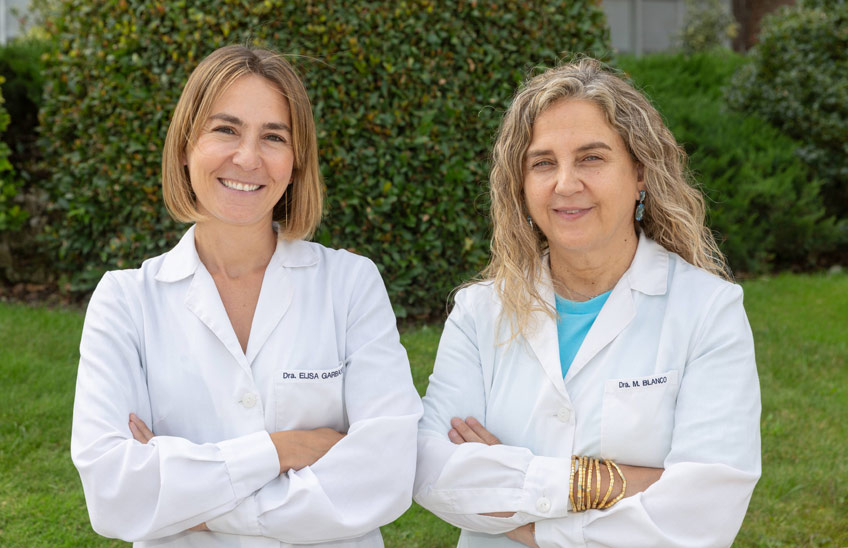Binding of drugs to lipids could improve drug efficacy
Nature Reviews Bioengineering' publishes a collaborative study by the University of Navarra and the University of Paris-Saclay that highlights the significant advance in nanomedicine.

FotoManuel Castells<br>/Elisa Garbayo y María Blanco, investigadoras de la Facultad de Farmacia y Nutrición de la Universidad de Navarra que han participado en el estudio.
14 | 11 | 2023
Researchers from the School of Pharmacy and Nutrition of the University of Navarra and the University of Paris-Saclay have presented an innovative strategy for drug delivery by binding prodrugs with nanostructured lipids. This combination could improve their efficacy and diffusion across biological barriers, and thus improve the treatment of diseases considered incurable.
The journal Nature Reviews Bioengineeringwhich focuses on the most important developments at the intersection of biology and engineering, has published a literature review highlighting this important advance in the field of nanomedicine.
The article, graduate "Advances in nanomedicine: innovative strategies for nanomedicine delivery", features Dr. Elisa Garbayo and Dr. Maria Blanco, from the School of Pharmacy and Nutrition, together with Professor Patrick Couvreur and Dr. Sinda Lepetre, from the University of Paris-Saclay. Their work focuses onaddressing the challenges core topic related to nanomedicine delivery.
Nanomedicine involves the use of nanoparticles containing the active drug and transporting it. "Despite its great promise in the field of medicine, it still faces significant challenges, such as the amount of drug that can be transported and the uncontrolled release after administration," says María Blanco.
Eliminate the need for additional excipients
"What makes this breakthrough particularly relevant is the ability of lipids to self-assemble into nanoparticles in aqueous media, eliminating the need for additional excipients, which represents a significant advance in medical nanotechnology," explains the professor.
This literature review provides a detailed overview of the synthesis Chemistry, physicochemical properties, structure and pharmacological activity of lipid-based nanomedicines and prodrugs. In addition, its application in patients is also addressed, which poses a major breakthrough for the treatment of diseases considered incurable. "Nanomedicine has the potential to revolutionize the way we approach medical therapies. Lipid-based nanomedicines and prodrugs offer an encouraging prospect for improving the efficacy of treatments for various diseases," explains Dr. Blanco.
